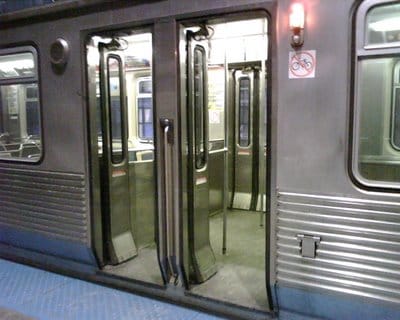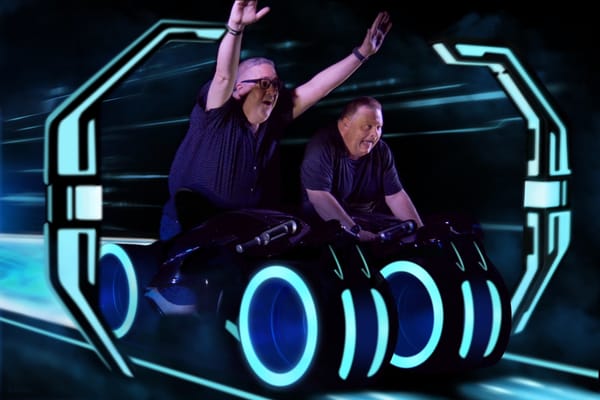Are CTA Employees to Blame for Annoying New Warning Announcements on the 'L'?
The CTA blames bad rider behavior for the annoying, live 'doors are closing' announcements now made every time an 'L' train leaves a station. But the problem might not exist if train operators didn't abuse the existing recorded warning in the first place.

You've heard the strident, often angrily barked announcement emanate from overhead 'L' train speakers a thousand times by now: "Attention, customers, please do not attempt to board the train, doors are closing."
You try to tune it out, but even with headphones on 10 the repetitive announcement still manages to invade weary eardrums. The CTA began requiring 'L' operators to make the live announcement before closing train doors six months ago, in the wake of several high profile dragging incidents (including the infamous November 2009 Red Line stroller incident) that occurred because people or their possessions ended up jammed between quickly closing doors.
Trouble is, if you think the announcements are made for your protection, as the CTA claims--or that they're necessary, or even the fault of riders in the first place--think again. If 'L' riders are in the habit of trying to beat closing train doors, couldn't it be because misuse of the existing recorded warning by train operators has trained them into it?
Ever since automated announcements appeared on the 'L' in the early 2000s, the CTA has required operators to play a familiar, very clear recorded message before leaving the station: two loud warning chimes, followed by the now-famous voice of "CTA Guy" saying, "Doors closing."
There's nothing hard-to-understand about that existing recorded door-closing message. But for the seven-and-a-half years I've lived in Chicago, I've almost never heard it used correctly. I can count on one hand the number of times I've heard 'L' train operators give riders an adequate amount of time to get on and off the train before playing it.
Usually, however--and I'm sure every 'L'-riding Chicagoan reading this will bear me out--train operators play the recorded "Doors closing" announcement within a second or two of the doors opening in the first place. During rush and midday hours, operators often play the announcement long before riders have managed to get off the train, much less get on.
What's the result of that? It's brutally obvious--riders scurry onto the train to avoid remaining left on the platform. And because the announcement has been made early, those riders still boarding or waiting to board have no further official warning about when the the doors are really going to close, unless the operator deigns to play it again.
So riders take their chances, and some of them get dragged. All because for several years 'L' train operators have been too lazy to bother to play the recorded "Doors closing" announcement when the doors are actually closing. And for those same several years, the CTA's never done anything about it.
Well, until as I assume CTA lawyers became afraid that at some point someone--or some baby in a stroller--would be dragged to their death. So now we have live announcements, hurray! Which, of course, means the CTA has some defense in case the family of someone killed in a CTA dragging incident tries to sue the CTA for negligence.
Why do I think this is the real reason for the new, annoying announcements? Because the recorded announcements are still being made early, at the wrong time. As if no one at the CTA has even noticed there's a problem. Which, when you think about it, is the same reason the live announcements are useless. After all, what reason has the CTA given for riders to believe the live announcement means what it says any more than the recorded one does?
This is not rocket science, or even public transit science. It's just common sense. CTA riders ignore door-closing announcements because even in the wake of November 2009, they're still being made wrong. SO, earth to CTA:
Why?




